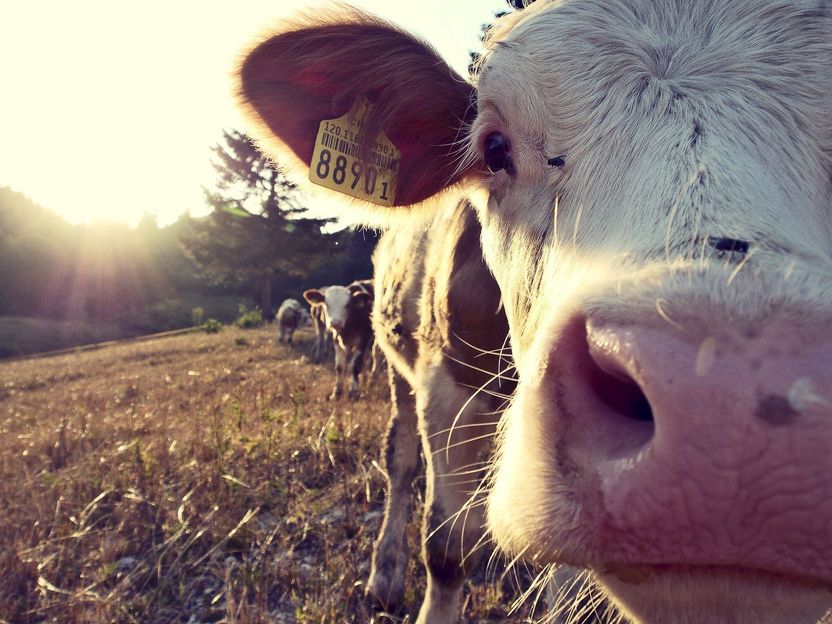Cow's milk protein beta-lactoglobulin prevents allergies
New key molecule for the so-called protective farm effect
Advertisement
Numerous studies have shown that growing up on a farm and drinking natural, unprocessed cow's milk in early childhood protects against the development of immunoglobulins E (IgE), which are responsible for allergy symptoms. A recent study led by Franziska Roth-Walter and Erika Jensen-Jarolim from MedUni Vienna's Institute for Pathophysiology and Allergy Research and the inter-university Messerli Research Institute – a joint institution of Vetmeduni Vienna, the Medical University of Vienna and the University of Vienna – has shown that a protein derived from cows, beta-lactoglobulin, which also occurs in their milk, is a key molecule involved in the so-called farm effect that protects against allergies.

Symbolic image
tookapic, pixabay.com, CC0
The farm environment trains the immune system. Children who play in the cow shed and drink untreated milk are less likely to suffer from allergies and asthma. This effect is called the protective farm effect. The study was recently published in "Journal of Allergy and Clinical Immunology (JACI)". In laboratory and animal model studies, the research team showed that, when it is carrying its natural ligands, such as plant pigments from green grass, beta-lactoglobulin prevents allergies. Conversely, when it is without its natural ligands, the protein behaves like an allergen.
Says Roth-Walter: “The anti-allergenic properties of natural beta-lactoglobulin can be explained by the fact that this protein specifically delivers its ligands to the immune cells, thereby preventing inflammation. Moreover, the natural ligands prevent IgE antibodies from docking onto beta-lactoglobulin protein, so that it should be better tolerated by children with milk allergy.”
New key molecule
The study therefore presents the bovine protein beta-lactoglobulin as a new molecule, which, together with its natural ligands, is of interest with regard to the protective effect against allergies known as the farm effect. However, circumstances that could lead to a loss or lack of these ligands, e.g. due to industrial milk processing or poor quality animal feed, could turn the well-tolerated milk protein beta-lactoglobulin into an allergen. "Our study offers hope that the allergy protective farm effect could be made more practicable and used to prevent the allergy epidemic," stresses Erika Jensen-Jarolim.
Original publication
Roth-Walter F, Afify SM, Pacios LF, Blokhuis BR, Redegeld F, Regner A, Petje LM, Fiocchi A, Untersmayr E, Dvorak Z, Hufnagl K, Pali-Schöll I, Jensen-Jarolim E; "Cow milk protein beta-lactoglobulin confers resilience against allergy by targeting complexed iron into immune cells"; J Allergy Clin Immunol.; 2020
















































